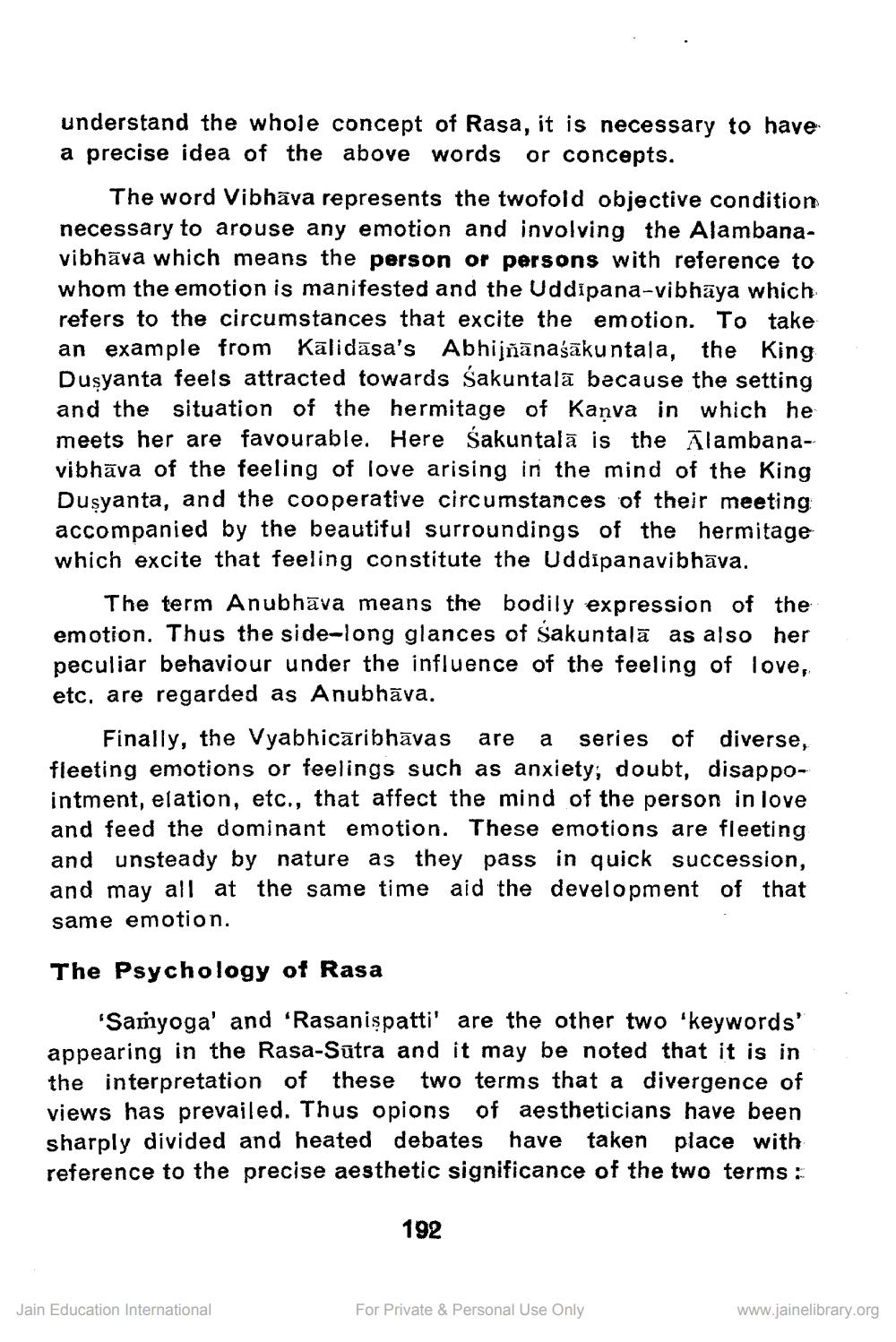________________
understand the whole concept of Rasa, it is necessary to have a precise idea of the above words or concepts.
The word Vibhāva represents the twofold objective condition necessary to arouse any emotion and involving the Alambana. vibhāva which means the person or persons with reference to whom the emotion is manifested and the Uddipana-vibhāya which refers to the circumstances that excite the emotion. To take an example from Kālidāsa's Abhijñānasākuntala, the King Duşyanta feels attracted towards Sakuntalā because the setting and the situation of the hermitage of Kanva in which he meets her are favourable. Here Sakuntalā is the Alambanavibhāva of the feeling of love arising in the mind of the King Duşyanta, and the cooperative circumstances of their meeting accompanied by the beautiful surroundings of the hermitage which excite that feeling constitute the Uddipanavibhāva.
The term Anubhāva means the bodily expression of the emotion. Thus the side-long glances of Sakuntalā as also her peculiar behaviour under the influence of the feeling of love, etc, are regarded as Anubhāva.
Finally, the Vyabhicāribhāvas are a series of diverse, fleeting emotions or feelings such as anxiety; doubt, disappointment, elation, etc., that affect the mind of the person in love and feed the dominant emotion. These emotions are fleeting and unsteady by nature as they pass in quick succession, and may all at the same time aid the development of that same emotion.
The Psychology of Rasa
'Samyoga' and 'Rasanispatti' are the other two keywords' appearing in the Rasa-Sūtra and it may be noted that it is in the interpretation of these two terms that a divergence of views has prevailed. Thus opions of aestheticians have been sharply divided and heated debates have taken place with reference to the precise aesthetic significance of the two terms ::
192
Jain Education International
For Private & Personal Use Only
www.jainelibrary.org




